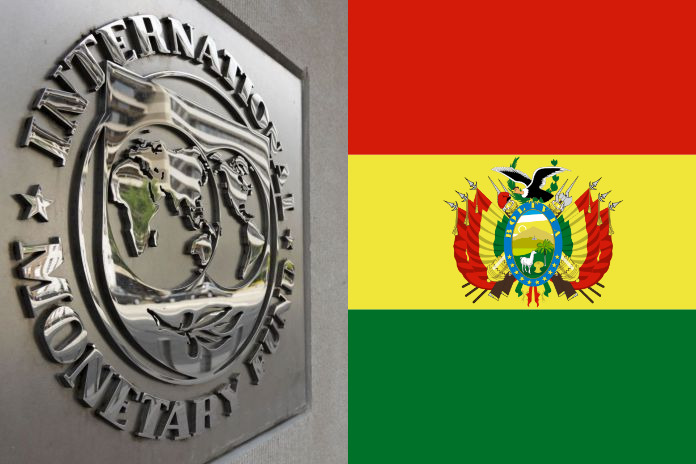WASHINGTON, USA – On June 14, the executive board of the International Monetary Fund (IMF) concluded the Article IV consultation with Bolivia.
The COVID-19 pandemic has had devastating effects in Bolivia, causing unprecedented disruptions and tragic loss of life, with over 15,000 deaths and 400,000 cases reported so far. The necessary quarantine imposed in March 2020 restricted mobility and access to work, and output declined in all sectors except agriculture, leading to an 8.8 percent contraction in GDP in 2020. Dampened import demand brought about an improvement in the current account, which tightened by 3 percentage points to ½ percent of GDP. The slowdown in growth and falling food prices compressed inflation to 0.9 percent in 2020.
To combat the pandemic, the authorities increased public health outlays and provided support to households, businesses, and the financial sector. One-off expenditures on direct relief programs, such as the Bono Contra el Hambre, and heightened expenditures on the health sector and social support, helped to mitigate the impact of the pandemic. The cyclical downturn decreased revenues, increasing the public sector deficit to 12.7 percent of GDP in 2020. The fiscal expansion contributed to a fall in international reserves, which declined from US$6.5 billion at end-2019 to US$4.7 billion at end-March 2021.
The economy is expected to rebound in 2021, growing by 5.0 percent, supported by the authorities’ program to vaccinate the full adult population as quickly as possible. Higher international commodity prices are expected to boost the recovery in the mining and hydrocarbons sectors, while growth in the agricultural sector should remain strong. Modest improvements in the fiscal deficit in 2021 are projected, supported by recovering revenues, progressive withdrawal of COVID-19-related one-off expenditure items, and a slowdown in wage growth and spending on goods and services.
Risks to the outlook include uncertainties over the course of the pandemic and the pace of vaccinations in Bolivia and its main trading partners, and over the projected rise in global commodity prices. Reliance on financing from international markets could expose Bolivia to changes in external financing conditions, while Covid-19-related loan payment deferrals may increase financial stability risks.
Executive board assessment
Executive directors commended the Bolivian authorities for their proactive response to the pandemic, including the fiscal support to households and businesses, enhanced support to the health sector, and their strong efforts to increase vaccination. While directors agreed that macroeconomic policies should continue supporting the recovery in the near term, they also emphasized the importance of safeguarding medium-term fiscal and external sustainability while fostering a more inclusive, greener economy.
Directors commended the authorities’ strong fiscal response to the crisis. They recommended sustaining the necessary targeted financial support for affected households while the health crisis endures. At the same time, directors stressed the need to place near‑term policy efforts in the context of a clear medium-term plan that brings the fiscal deficit to a sustainable level over the medium term and stabilizes the debt-to-GDP ratio. They emphasized that the fiscal consolidation should include measures to mobilize revenue and to rationalize and refocus expenditure to continue improving social welfare and reducing poverty.
Directors noted the authorities’ preference for maintaining the current exchange rate regime, which has resulted in low and stable inflation. At the same time, they encouraged the authorities to further explore the potential benefits of, and needed preconditions for, carefully allowing greater exchange rate flexibility over the medium term, noting that this transition would require substantial preparatory work but could increase resilience to exogenous shocks, forestall a further loss of reserves, and increase competitiveness of non-hydrocarbon industries. Directors welcomed the support provided to the financial sector during the pandemic through a loan-deferral program, and encouraged the supervisory authority to strengthen its monitoring of bank profitability, liquidity, and capital while the moratoria are in effect.
Directors encouraged the authorities to implement structural reforms that foster private domestic investment and foreign direct investment. To this end, they recommended phasing out price and export restrictions, relaxing credit quotas and interest rate caps, reducing subsides to state-owned enterprises in the hydrocarbon sector, and addressing social equity concerns through targeted fiscal support. Directors noted that addressing governance issues and uncertainty in the regulatory environment is crucial to support job creation and boost long‑term growth.
Directors commended the impressive reduction in poverty achieved since the mid-2000s and noted that continued progress in poverty alleviation will depend on increasing support to the education and public health systems. They welcomed the authorities’ ongoing investment in greener energy sources to diversify domestic energy consumption away from fossil fuels, provide new sources of revenue, and bolster the economic recovery.






